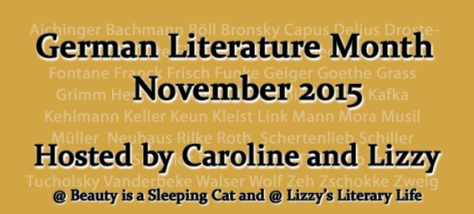
The first in a detective series marketed as folk crime, Turning Blue is a slight departure for Myers. He’s never written outright crime before. However, this is definitely not a police procedural, it is more rural crime noir with flawed but decent heroes at its heart.
Obsessive and antisocial Detective Brindle and ex-hedonist journalist Mace form an unlikely alliance to uncover why a local teenager has mysteriously disappeared. They expose so much more than a run of the mill missing persons case. In a work where art often imitates recent real life news stories and police investigations which have shocked the British public, Brindle and Mace wade through sleaze, establishment corruption and cover ups involving the police, close knit silent communities, a grotesque character who seems to be a mash up of Jimmy Saville, Jonathan King and Stewart Hall and a revolting, disturbing loner pig farmer whose behaviour as the story progresses goes from the bizarre and creepy to alarming and sinister. His pathetic existence invades every page cultivating a feeling of unease from the beginning.
It’s easy to compare Ben Myers’ writing to the likes of Cormac McCarthy, Derek Raymond or James Ellroy – I’ve done it myself before. Here’s another comparison: There’s a touch of the David Peace Red Riding about Myers’ latest offering; hard Northern men, institutional corruption, sleaze and violence in small, overlooked communities. Such comparisons are useful to allow those who’ve never come across his books to get a flavour of what to expect, but also slightly erroneous. Ben Myers’ writing is difficult to define or pigeon hole. He seems unsure himself of how this new book should be described. But does it matter? Do I need to compare it to other work? Do I need to identify it as writing of a particular genre? I don’t think so.
Myers has his own style, he is an exciting writer of extraordinary talent with an ability to weave heart-breaking tales about marginalised communities and individuals with brutal, bleak and stomach-wrenching stories into the evocative tapestry of a landscape setting. This creates a dichotomy for the reader; admiration for the perceptive descriptions and economy of writing mixed with feelings of revulsion at the violence and horror. Myers has never been for the faint-hearted or easily offended and Turning Blue is no different to its two predecessors in that respect. It is visceral. Human beings can be sick, we just don’t like admitting it to ourselves and Myers continues to make no apology for holding the mirror steady so we can’t avoid the myriad of vileness and the depths some of us can stoop to. This is what I love; honesty in fiction. I’m pretty sure the stuff Myers writes about in Turning Blue does/has happened, no matter how uncomfortable that makes me feel.
The outdoors is the scaffolding on which Myers overlays the plots of all his recent fiction and Turning Blue continues that trend. The countryside sometimes feels like an afterthought in some “nature” writing, but Myers has always used it to represent emotion and propel a plot onwards. In Pig Iron the landscape provided solace and refuge (and there is a lovely nod to John John Wisdom’s green cathedral with its mention in Turning Blue), in Beastings it was a menacing means of escape, in this book, the Yorkshire countryside is brooding, an irritant obstructing the investigation. It is harsh and bleak, wet or snowbound and difficult to navigate if you are not from the “Hamlet”. You know the ancient sod and dirt will triumphantly remain long after these characters are dead and buried. It is the constant.
I am continually excited and blown away by Myers’ awesome writing. I swallowed down this book with the thirst of the seriously dehydrated. I suggest you all get the drinks in as soon as you can because Myers is the landlord serving up intoxicating fiction.
Thanks to Ben and Moth Publishing for sending me a review copy and the lovely tin of moss, wire and plastic pig.
Other Ben Myers stuff to read on here:


